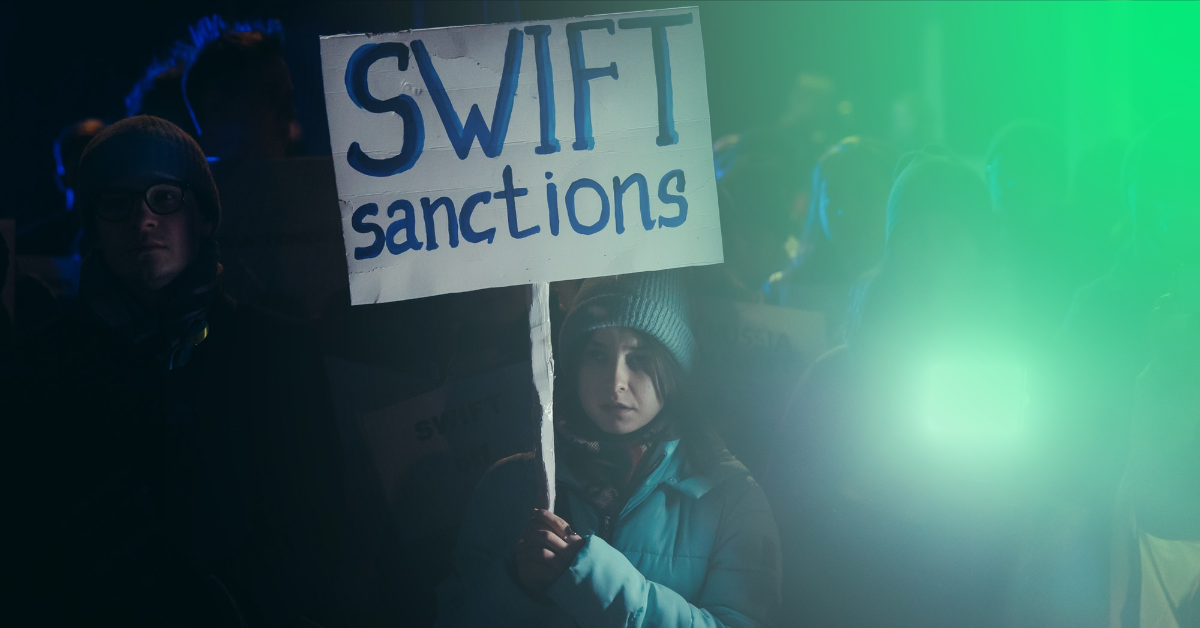Compliance with requirements on Anti-Money Laundering (AML) and Counter-Terrorism Financing (CTF) contributes to the prevention of the financing of criminal activities, the laundering of illegally earned money, and the hiding of assets. One major and heavy task all Financial Institutions (FIs) must do is to carry out effective and timely sanctions screening.
With sanction lists constantly changing, managing noncompliance risk is becoming more challenging. The nature of list information, the increasing volume of data, the frequency of updates, and the consequences of sanctions are all factors that make compliance more complex. The fluid nature of sanction lists, however, is not an excuse for failure to perform timely updates. Feeding accurate, and timely information to the screening engines is critical, as delays can expose institutions to operational, reputational, financial, and political risks.
The need for operative and reliable list management tools coupled with an effective and efficient sanctions screening engine is crucial. Having one of them without the other will cripple the operation. A sanction check platform that executes immediate updates, in real-time, is a must-have in the current environment of fast-changing sanctions. This fact has been highlighted and amplified even more since the beginning of the Russia/Ukraine war.
Eastnets understood this risk and has identified the challenges its customers are facing in the very early stages. Eastnets R&D team started an ideation and explorational phase a while back and came up with an innovative solution utilizing core and specific features of Distributed Ledger Technology (DLT), such as immutability and instant sharing of data, and succeeded to bring Eastnets ChainFeed to life in 2020, making the sanctions updates seamless, fully automated, fully trusted, real-time and 100% authentic.
What is ChainFeed?
Even though the sanction screening basic principle is fairly simple - a financial institution has to compare all data related to individuals, entities, and/or transactions with the data in the relevant sanctions lists - the reality of this process is anything but simple.
It is the responsibility of the institution to make sure at any moment that they are comparing their data to recent sanctions lists. This creates huge pressure and introduces considerable disruption and risk to the operation. The current conventional way of executing the watchlist updates by a financial institution does not ensure the authenticity of the user data due to human intervention, unreliable and traceable manual processes, and technologies. Add to that, the manual and scheduled updates, which make it almost impossible to ensure that the user lists are up to date with reference to the regulatory watchlists. This brought the need for robust, seamless, and fully automated processes and tools to take over this challenging task.
The current war in Ukraine has brought this need sharply into focus. Wartime sanctions have meant that the already fluid sanction updates experienced during peace times, will be more critical and time-sensitive. Fast updates on sanctioned entities that have arisen because of the war, meaning that FIs must act quickly and regularly to make updates. The PIIE (Peterson Institute for International Economics) maintains a timeline of the sanctions applied during the Ukraine war. In the weeks of the war, so far, there have been almost 150 complex sanctions placed, often, more than daily.
Financial Institutions need a helping hand to remove the burden of manual intervention and to ensure that sanction lists are current. This help is especially pertinent as sanctions are part of the global management of pariah states and individuals.
This is where ChainFeed comes in:
Why ChainFeed?
Eastnets ChainFeed was designed by the innovation team at Eastnets with a clear purpose and value proposition.
The aim is to achieve a safe, smooth, and trusted, customer journey while complying with rapidly changing sanction regulations, and tackling the following critical questions:
- How complex and disruptive is the watchlist process to your operations?
- How frequently do you update the Watchlists in your screening engine?
- How long does it take from the moment the updates are released by the regulator until they are in your screening engine?
- Have you ever been exposed to risk due to the delays in updates?
- Are you missing any updates? How would you know?
Is the authenticity of data ensured? How? - What controls do you have over the process you use and how do you prevent human intervention/human errors?
- How reliable is the technology you are using?
Is it auditable and traceable? And how do you fulfill the regulatory requirements? - What is the cost to stay compliant with sanction requirements?
- What is the cost of non-compliance?
Eastnets ChainFeed leverages the ‘by-design’ features of DLT to present powerful sanctions lists managing solutions. Integrating seamlessly with Eastnets Safewatch Screening solution and closing the loop to handle all the challenges introduced by the above questions, and much more.
Eastnets uses Dow Jones Risk & Compliance as the watchlist data provider and utilizes the Oracle blockchain platform to launch ChainFeed services on its own Service Bureau and makes the service available to all Eastnets SafeWatch Screening customers.
Partnering with Dow Jones Risk & Compliance as the watchlist data provider and Oracle as the blockchain platform provider, Eastnets launched a unique Sanctions List Management Solution on its Service Bureau and proposed it to all Sanction Screening Customers as a critical value-added service.
ChainFeed utilizes the most significant characteristics of permission and private distributed ledger platforms that serve the needs of its customers, enhance the customer experience, and fulfill the purpose of this innovative solution
Eastnets ChainFeed connects and listens continuously to any updates released by the lists provider on any of the watchlists. The moment an update is released by the lists provider, ChainFeed carries this update instantly and distributes it to all nodes; all permission institutions connected to the chain.
The permission institutions will receive the updates in real-time, with zero human intervention, and have the data reflected seamlessly on the screening engine with zero downtime.
If the update process gets interrupted for any reason, the system will automatically detect any missing updates and recover the process. The immutability of the ledger guarantees the authenticity of the data. Using the characteristics of DLT, all updates are auditable, and traceable and provide the capabilities for historical reviews and audits (lookbacks).
Integrity checks at any point at different levels with 24/7 monitoring and notification tools that gives you the assurance your lists are up-to-date, and they are identical to the original lists released by the list provider.
Keeping a watchful eye on sanctions
Integrated into Eastnets SafeWatch Screening, ChainFeed provides a 360-degree solution to sanction-list-management. It’s a trusted, reliable and efficient courier; takes list updates from the lists provider and injects them directly into the screening engine in real-time, with zero human intervention, and zero downtime.
No financial institution can afford to not automate sanction list updates as these lists grow in volume constantly and continuously. By using the power of Distributed Ledger Technology as a backbone, FIs can take advantage of a rich feature-set that sets up an organization to handle these updates, automatically and with speed, guaranteeing essential security and assurance.
EBA Cryptotechnologies Working Group suggested: “AML/CTF sanctions lists must be updated and reconciled by multiple parties, which can lead to some parties updating lists at different times and resulting in information asymmetries given the absence of coordinated actions”
Using ChainFeed across different entities, will ensure synchronous updates across all these different entities and ensure the identicality of sanctions data used by the screening engine at any moment, bringing consistency across all these entities, which eventually will bring synchronization and coordination in actions across all these entities.
The Russian/Ukrainian war has shown the vital importance of having an automated and real-time method to update sanctions lists. A full array of international sanctions has been applied on Russia in a matter of weeks. FIs are expected to implement and fully comply with all new sanctions with no delay, keeping them constantly on their toes!
The Ukrainian war is unlikely to be the end of these large volumes of sanctions that need to be adhered to. Eastnets ChainFeed future-proofs the financial institution's capability to do just that and provides the assurance needed by banks and other FIs to update their sanction lists with confidence.
- Read more about ChainFeed
- Watch an exclusive interview with Eastnets Deputy CEO, Deya Innab talking about this revolution in sanction screening compliance.





